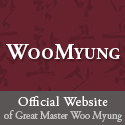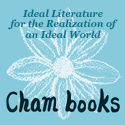Researcher Yun, M R. Professor, Chung-Ang University
Publisher School of Nursing, Seoul University
Publishing year Feb. 2014
With recent increases in cancer survival rates, many cancer survivors must manage aftereffects of cancer treatments as well as psychological impacts of cancer such as depression, stress, anxiety, anger, social isolation, interpersonal avoidance and withdrawal, many of which are often experienced severely.
This study aimed to examine the effect of Ma-eum Su-ryun on psychological well-being of breast cancer survivors. A Ma-eum Su-ryun program was developed for the breast cancer survivors considering their unique physical and psychological characteristics. The results showed that in comparison to a non-meditation group, the group which attended the Ma-eum Su-ryun program showed reductions in perceived stress, depression, and anxiety; and improved quality of life, life satisfaction, and post traumatic growth.
The participants reported that they experienced changes from negative mindset to positive one through cleansing their minds, which resulted in enhancement in life satisfaction, gratitude, and optimism.
Since the Ma-eum Su-ryun program was shown to be effective in improving psychological well-being and life quality through self-reflection and self-healing, if such program is utilized in clinical practice, it can provide a practical assistance for health maintenance and well-being of cancer survivors. Further, it can contribute to widening applications of nursing clinical interventions.
Study purpose
This study examined if the Ma-eum Su-ryun program would decrease depression, anxiety, and stress; and increase quality of life, sleep quality, life satisfaction and post traumatic growth in breast cancer survivors.
Study participants
54 breast cancer survivors participated in the study. They were aged from 30 to 65 years old, who received cancer surgery and treatments in the last 2 years and 6 months.
Study method
A randomized control trial method with control and experimental groups (pre and post-test) was used to examine the effect of the Ma-eum Su-ryun program. The experimental group received 8 weeks of the Ma-eum Su-ryun program, twice a week (2 hours each session). The control group received 4 weeks of a self-management program, once a week (2 hours each session).
The programs started from July to September, 2013 in a hospital seminar room. The study was approved by IRB of Department of Nursing, Seoul University (IRB approval No: 2013-52) and Seoul Asan Hospital (2013-0443).
Theoretical foundation utilized the principle of Ma-eum Su-ryun which includes 8 levels of a specific mind cleansing method.
Study tools
1) Depression: CES-D (Center for Epidemiologic Studies Depression Scale)
2) Anxiety: BAI (Beck’s Anxiety Inventory)
3) Stress: PSS (Perceived Stress Scale)
4) Quality of life: FACT-B (Functional Assessment of Cancer Therapy-Breast)
5) Quality of sleep: PSQI (Pittsburgh’s Sleep Quality Index)
6) Life satisfaction: SWLS (Satisfaction with Life Scale)
7) Post Traumatic growth: PTGI (Posttraumatic Growth Index) included 5 subcomponents of depth of interpersonal relationship, discovery of new possibility, discovery of personal inner power, increased interest in spirituality and religion, and gratitude about life.
Study results
1) The breast cancer survivors group which received the Ma-eum Su-ryun program showed a significant decrease in depression, anxiety, and stress; and showed a significant increase in quality of life, sleep quality, life satisfaction and post traumatic growth.
2) When analyzing qualitative data of the Ma-eum Su-ryun program participants, through cleansing their negative mind, they were able to become more positive with improved life satisfaction and gratitude. They experienced finding true happiness, “from imprisonment to freedom,” and “from closed minds to an open world.”
3) 81.5% of the participants completed the Ma-eum Su-ryun program, (with an 83% attendance rate) which demonstrated the program’s good potential for clinical intervention and utilization.
Many research studies and theories suggested that to increased life quality, well-being and health promotion, more emphasis was needed on spiritual health, positive outlook on life, and self-transcendence. This study result was meaningful in that, it pointed to and confirmed significant beneficial effects of the Ma-eum Su-ryun program and its promising potential for clinical utilization.
Through self-reflection and self-healing enabled by the Ma-eum Su-ryun program, mental well-being and quality of life can be improved. When utilizing the meditation program for cancer survivors, it can be a valuable support for the survivors, enabling them to lead healthy and happy life.
<Stress reduction>
The breast cancer survivors who participated in the the Ma-eum Su-ryun program significantly decreased perceived stress in comparison to the other group who didn’t participate.
<Reduction in depression>
The breast cancer survivors who participated the Ma-eum Su-ryun program significantly decreased depression, in comparison to the other group who didn’t participate.
The differences in improved depression scores were far greater than other meditation studies, and the scores were significantly better than normal average adults without cancer.
<Improved quality of life>
The scores in quality of life were very significantly improved in the group which received the Ma-eum Su-ryun program, as opposed to the non-meditation group which had no changes in quality of life scores.
Considering that average South Korean breast cancer survivor’s quality of life scores (FACT-B) ranged 88.92-96.56, the Ma-eum Su-ryun program group had far superior improvements in quality of life.
<Life satisfaction>
The breast cancer survivors who participated the Ma-eum Su-ryun program, significantly increased life satisfaction in comparison to the others who didn’t participate.
<Post traumatic growth>
The breast cancer survivors, who participated the Ma-eum Su-ryun program, significantly increased post traumatic growth in comparison to the others who didn’t participate.
Source: meditationlife.org





















